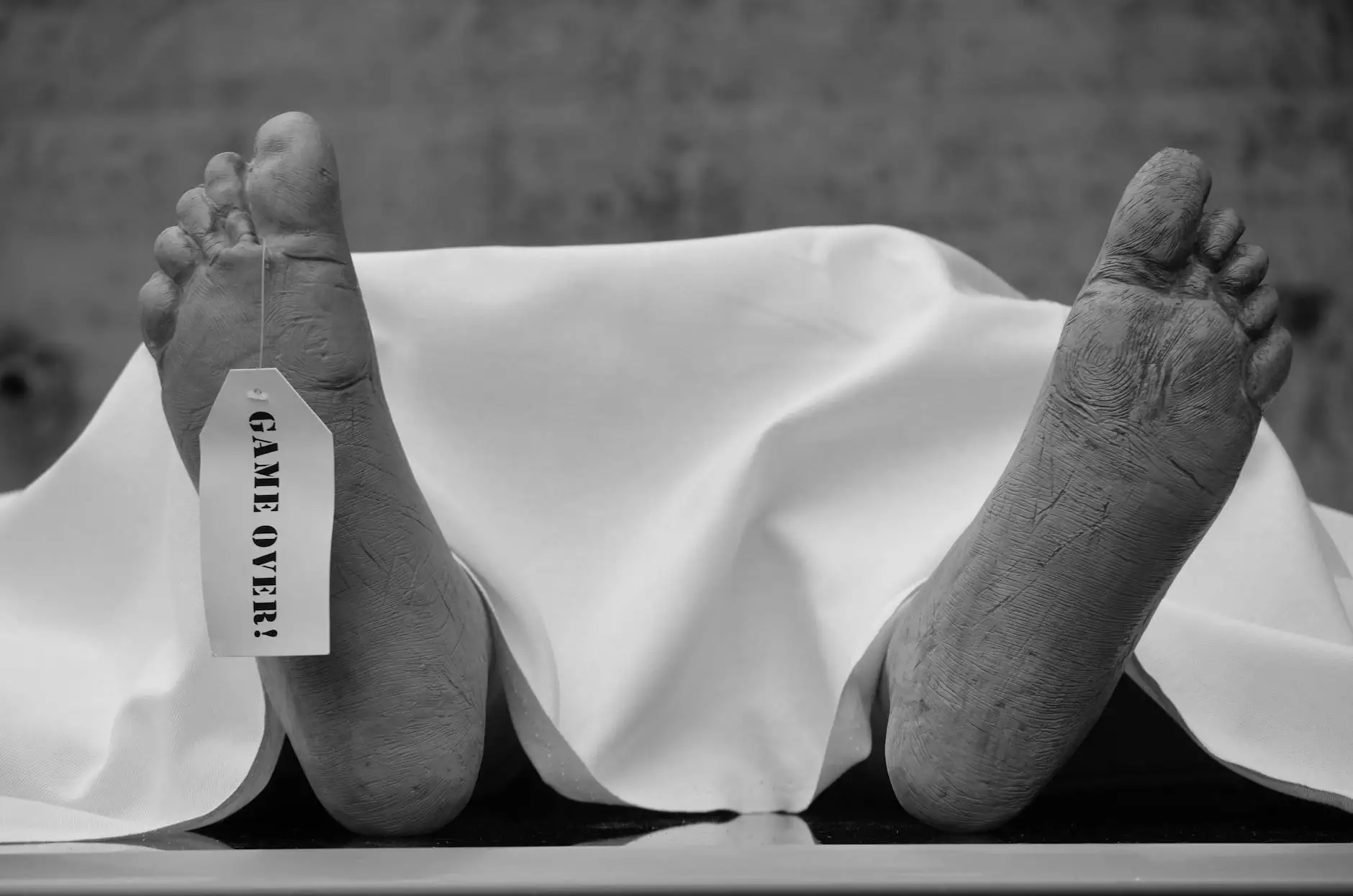Understanding "Legs Turning Black": Causes, Solutions & Insights

Legs turning black can be a concerning symptom indicating serious underlying health issues. In this article, we will delve into the reasons behind this condition, discuss expert treatment options, and highlight the importance of vascular health. Whether you are experiencing symptoms or just want to learn more, this comprehensive guide is tailored for you.
What Does "Legs Turning Black" Mean?
The phrase "legs turning black" refers to a discoloration of the skin on the legs, often appearing dark or purplish. This phenomenon can be attributed to various medical conditions, each requiring different approaches for diagnosis and treatment. The discoloration can be a result of poor blood circulation, venous insufficiency, or even serious conditions like arterial blockages.
Common Causes of Legs Turning Black
Understanding why your legs are turning black is crucial for seeking the right treatment. Here are some of the most common causes:
- Venous Insufficiency: This occurs when the veins cannot pump enough blood back to the heart, leading to blood pooling and skin discoloration.
- Chronic Venous Disease: A progressive condition where the veins become damaged over time, often leading to visible changes in the skin's color.
- Peripheral Artery Disease (PAD): A condition characterized by narrowed arteries, reducing blood flow to limbs and potentially causing severe discoloration.
- Diabetes: High blood sugar levels can cause poor circulation, resulting in skin changes, including darkened areas on the legs.
- Blood Clots: Deep vein thrombosis (DVT) can lead to acute symptoms like swelling and discoloration due to impaired blood flow.
- Skin Conditions: Certain conditions, such as dermatitis or eczema, can cause changes in pigmentation and skin texture.
Symptoms Associated with Legs Turning Black
Recognizing accompanying symptoms is essential for assessing the severity of your condition. Common symptoms to look for include:
- Swelling in the legs
- Pain or tenderness
- Itching or irritation
- Skin ulcerations or sores
- Changes in skin texture
When to Seek Medical Attention
If you notice your legs turning black, it is imperative to seek professional medical advice. Early intervention can prevent potential complications. Consult your healthcare provider if you experience:
- Rapid discoloration
- Severe pain or swelling
- Heart palpitations or chest pain
- Fever or chills
Diagnosis of Legs Turning Black
To determine the cause of legs turning black, a comprehensive medical evaluation is necessary. This might involve:
- Physical Examination: A thorough physical assessment by a healthcare provider who evaluates the color, texture, and temperature of the skin.
- Medical History Review: Discussing your medical history, including any previous conditions that may contribute to blood circulation issues.
- Ultrasound Imaging: This non-invasive test helps visualize blood flow and detects any blockages or vein issues.
- Blood Tests: Checking for underlying conditions such as diabetes, clotting disorders, or signs of infection.
Treatment Options for Legs Turning Black
Treatment for legs turning black depends largely on the underlying cause. Here are some common treatments that specialists may recommend:
1. Lifestyle Modifications
Making changes to your lifestyle is often the first step in treatment:
- Healthy Diet: Consuming a diet rich in fruits, vegetables, and whole grains can improve vascular health.
- Regular Exercise: Engaging in activities like walking or swimming can enhance circulation.
- Weight Management: Maintaining a healthy weight reduces pressure on your veins.
2. Medications
Depending on the diagnosis, medications might be necessary:
- Anticoagulants: To prevent blood clots in cases like DVT.
- Statins: To manage cholesterol levels, promoting better vascular health.
- Vascular Support Medication: To improve blood flow and reduce symptoms associated with venous insufficiency.
3. Medical Procedures
In more severe cases, medical interventions may be required:
- Vein Treatments: Varicose vein treatments, including sclerotherapy or laser therapy, can improve circulation and reduce discoloration.
- Angioplasty: A procedure to widen narrowed arteries, improving blood flow to the legs.
- Bypass Surgery: In cases where arteries are severely blocked, surgical bypass may be necessary.
The Role of Vascular Specialists
Seeking help from vascular specialists like those at Truffles Vein Specialists can provide you with tailored healthcare solutions. Vascular experts are trained to diagnose and treat conditions affecting the circulatory system. Their approach includes:
- Comprehensive Assessments: Utilizing advanced diagnostic tools to determine the extent of your condition.
- Personalized Treatment Plans: Developing strategies that cater specifically to your needs and health goals.
- Ongoing Management: Providing continuous support and adjustments to treatment as required.
Preventing Legs Turning Black
Prevention is always better than treatment. Here are some actionable steps to maintain healthy legs:
- Stay Active: Regular physical activity promotes healthy circulation.
- Avoid Prolonged Sitting/Standing: Take breaks to move around if your job requires long periods of immobility.
- Wear Supportive Stockings: Compression stockings can help improve venous return and prevent blood pooling.
- Monitor Blood Sugar Levels: For diabetics, controlling blood sugar is crucial for preventing vascular complications.
Conclusion
Legs turning black is a significant medical concern linking to various health issues. Understanding the underlying causes, recognizing symptoms, and seeking expert medical treatment can make a substantial difference in your vascular health. Remember, reaching out to specialists like those at Truffles Vein Specialists empowers you to regain control over your health and well-being.
Do not ignore the signs your body is showing. Early diagnosis can save you from severe complications and help you lead a healthier, more fulfilling life. Your legs deserve attention; take that first step today!









